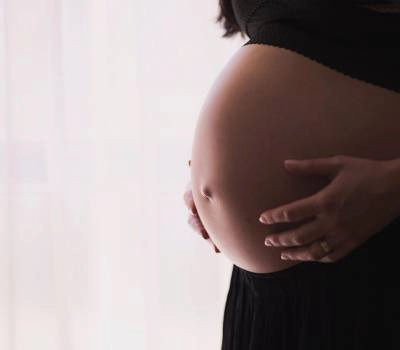Every pregnant woman should undergo a cytological examination during pregnancy. Cervical cancer is one of the most common cancers in pregnant women. In addition to cytology, a colposcopy is also performed for diagnosis. What does it consist of and is it safe during pregnancy?
Colposcopy during pregnancy – what does it include?
Colposcopy is a relatively simple examination to detect lesions on the cervix, vagina or vulva. Under appropriate magnification, the doctor looks at the surfaces of the vaginal walls and cervix. He or she may also use various staining agents such as acetic acid. If there are abnormalities, it is also possible to take a smear from the suspicious lesion.
Colposcopy during pregnancy – when is it used?
Colposcopy in pregnancy is done in case of an abnormal cytology result. According to current recommendations, colposcopy is undertaken if the cytological result is ASC-H (atypical squamous cells, high-grade intraepithelial neoplasia cannot be excluded), HSIL (high-grade intraepithelial neoplasia; includes dysplasia of intermediate CIN II and high-grade CIN III) or AGC (atypical cervical or endometrial or other glandular epithelial cells). If the pregnant woman’s cytology result is ASC- US, colposcopy can be postponed until 6 weeks after delivery, as most lesions regress.
Colposcopy in pregnant women is also done if palpable or macroscopically visible lesions are present on the cervix and HPV infection or neoplasia is suspected. Colposcopy is also recommended in patients with genital bleeding of unclear origin during pregnancy and after ruling out causes such as premature detachment of the placenta.
Colposcopy during pregnancy – preparation
There is no special preparation for the colposcopy. It is advisable not to have sexual intercourse for a few days beforehand and not to use vaginal products such as globules during this time. The examination itself is painless and takes about 10 minutes. Some women experience discomfort.
Colposcopy – is it safe during pregnancy?
Colposcopy is considered a safe examination during pregnancy. If incisions have to be made, they should be done gently and carefully. If the cytology result is abnormal, it is best to consult an experienced gynaecologist who specialises in the diagnosis of cervical cancer and also works with pregnant women. A cervical calpectomy, on the other hand, is not advisable because of the risk of premature birth or miscarriage.










